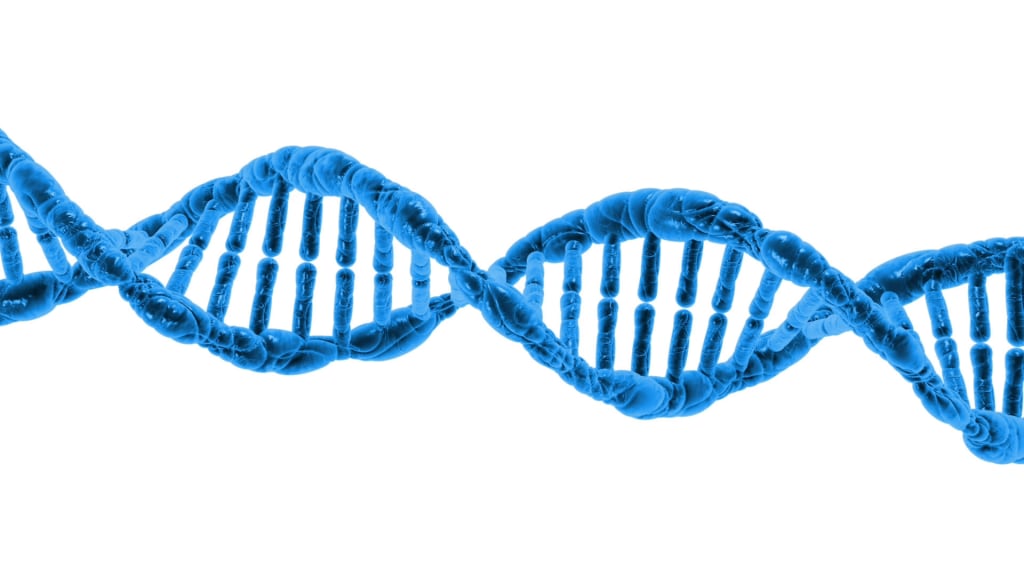Risks of Using DNA Websites in Criminal Investigations
It's always exciting when new technology advances our ability to track down criminals, but there are risks of using DNA websites in criminal investigations as well.

Genealogy websites use DNA samples to give their users information about themselves: their ethnic background, risk of certain diseases, even traits like hair color and detached earlobes. But a genealogy database of this kind has recently been given another use: a forensic database. In a ground-breaking case, police were able to track down and close the serial murderer and rapist in the Golden State Killer case. They did this by feeding DNA evidence found at one of the crime scenes into GEDMatch, a free genealogy website where people upload their own DNA results to track down their ancestry and family members. By looking at distant relatives, and narrowing the pool based on known factors like age range and ethnicity, police were then able to identify and arrest the killer, a man named Joseph James DeAngelo.
How exciting, right? But this new use of sites that were meant for ancestry and genealogy research raises some questions and concerns, as well. A whole new field of CSI is developing here, and the truth of the matter is, although the technology has the potential to revolutionize forensic investigations, there are risks of using DNA websites in criminal investigations to provide information to law enforcement agencies while infringing on people's rights.
It raises concerns about privacy and consent.

Perhaps the most obvious risk of using DNA websites in criminal investigations is that it infringes on users' privacy. Now, one could argue that this is a risk the user takes when they choose to put their DNA information online, but it's not as simple as that. Yes, sending you genetic materials to one of these sites, or uploading your DNA information is, in many ways, like putting anything else online; while the public doesn't have access to the specifics of your genetic information, such as risks of diseases or likelihoods of different traits, they dohave access to your familial information. After all, that's part of the point, especially for sites like ancestry.com. People upload their genetic data so that they can find other people with similar, familial DNA, and learn more about their history while connecting with potential relatives.
However, this isn't the same as making your information explicitly public. People generally use these sites with certain beliefs in mind, many of them backed up by the waivers and disclosures you have to sign. Such beliefs hinge around how their data will be used. For most, they expect it to be used to connect them with distant relatives, and give them information about themselves. Some sites, like 23andMe, will also ask for permission to use your genetic data anonymously in research and scientific studies. But that's about the extent to which people expect their genetic information to be used. They certainly don't expect, and are never asked to explicitly consent to, their information being used to solve cold cases, or to be dragged into a criminal investigation based on their familial DNA.
Some argue that it's the public's choice to put their information out there or not. Others hold the belief that it's the responsibility of the companies and law enforcement treat this sensitive genetic information with discretion. At the very least, certain legal procedures should be followed, like obtaining a warrant, and consent from the DNA donors should be required. Some companies already do this—in fact, ancestry.com does not allow law enforcement to access their database at all. But other sites, like GEDMatch, have no such restrictions, raising the question of those individual's rights and the responsibility the police have to them.
There's a risk for misidentification.

Another concerning risk of using DNA websites in criminal investigations is that DNA testing is not perfect, despite what crime shows would lead you to believe. Familial DNA searching will likely lead police in the right direction most of the time, but could very easily lead them to the wrong conclusions. Especially within families, DNA can give erroneous results; for example, some cousins have more similar DNA profiles than others, and might lead to a false sibling match. Plus, when dealing with cold cases, evidence corruption and loss is a big risk.
Such misidentifications have actually already happened. A filmmaker in Louisiana was suspected to be a wanted murderer in a cold case, based on the DNA information of his father, which was given voluntarily in a church project through ancestry.com. He was eventually exonerated, but the instance highlighted some of the major risks of using DNA websites for other purposes like this. First of all, the DNA led police to the wrong man. Secondly, the accused man had never even volunteered his own DNA, and so certainly didn't—couldn't—consent to his information being given out in this way. Finally, the man who didgive his DNA, the accused's father, did so with no intention of it being used in a criminal investigation. Though the police had a court order for ancestry.com to cooperate with the police in this case, the individuals in question were never consulted. These are concerning facts about this case, and concerning problems with familial DNA searching in general. Problems that need to be addressed in the legal branch before such investigations should continue.
It puts the family members in a difficult position.

It's tempting to waive the questions of rights and consent by saying, "hey, you gave up your right to privacy when you murdered someone." But as in the Louisiana case, we see that one of the risks of using DNA websites is not about the perpetrator or even the suspect, but their family. By nature, this method of investigation utilizes the information of completely innocent people. Even if the investigation leads to a correct identification and arrest, there is still an issue of privacy for those who had nothing to do with the crime, but were made complicit in the investigation anyway—without their knowledge or consent.
There's also an issue of the psychological and social effect of this kind of investigation on those innocent relations. First, such investigations by nature 'out' the family members of criminals, putting them under unfair scrutiny and at risk for social ramifications. Secondly, it makes them indirectly and involuntarily culpable for the arrest. If the arrested person is innocent, this could cause a lot of guilt on the part of the family member. Even if the arrested person is the appropriate criminal, those family members may feel guilty about being the cause of their arrest anyway. They might also feel used, and as though their privacy was unfairly violated—which, in fact, it was.
It may lead to the disclosure of non-criminal, private information.

DNA doesn't care about people's choices, but peopleshould care about other people's choices anyway. That includes law enforcement. The reason this is a risk of using DNA websites for this purpose is that people may have good, non-criminal reasons to want their DNA kept private. Familial DNA searching could complicate the lives of innocent people in cases such as adoption, surrogacy, sperm and egg donation, or even such considerations as name changes and witness protection programs. A snowball effect of continuing such practices includes a federally-regulated storing of information in DNA archives, something out of a Sci-Fi thriller. The short of it is, while familial DNA searching is an incredibly interesting field of forensics, with great potential, it is also a development that requires careful scrutiny to protect the rights of the public.
About the Creator
Nicola P. Young
Lover of Books, Saxophone, Blogs, and Dogs. Not necessarily in that order. Book blogger at heartofinkandpaper.com.






Comments
There are no comments for this story
Be the first to respond and start the conversation.